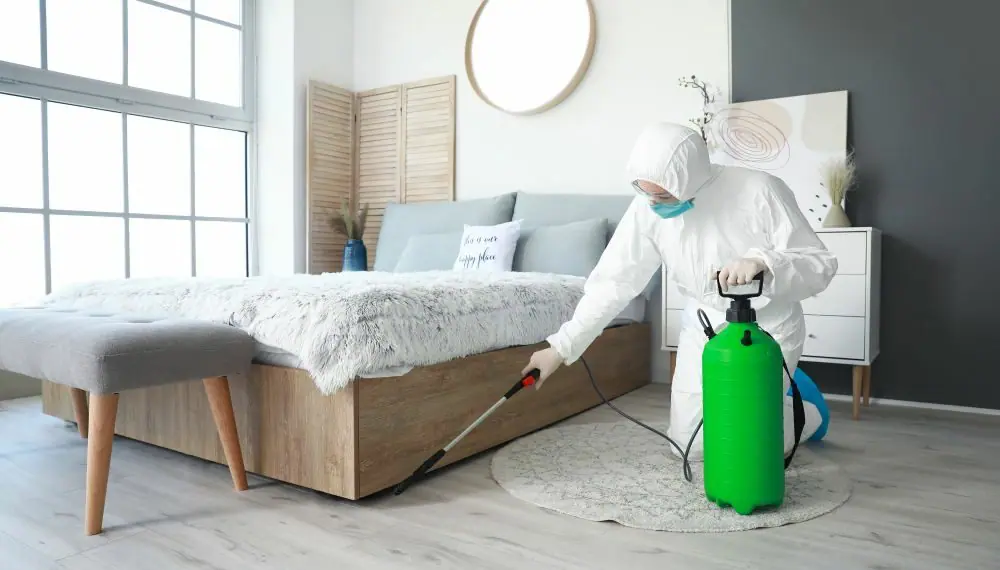In the bustling world of hospitality, maintaining a pristine and welcoming environment is crucial. One key aspect that ensures this is effective pest management. This begs the question, what are hotel pest monitoring regulations, and how do they impact the hospitality industry?
Hotels, with their constant flow of guests and food services, can be hotspots for pest activity. This makes the implementation of stringent pest monitoring regulations not just a necessity, but a legal obligation. Understanding these regulations is essential for hotel management to protect their reputation and ensure guest satisfaction.

The Importance of Pest Monitoring in Hotels
Pest infestations can lead to severe repercussions, including health code violations, negative reviews, and potential closures. Therefore, hotels must adhere to established pest monitoring regulations to ensure a safe environment for guests. By following these regulations, hotels can avert health risks and maintain their operational standards.
Regular pest monitoring helps in the early identification of pest issues, enabling timely interventions. This proactive approach is essential for preventing infestations and ensuring compliance with health and safety standards. For more insights on how pest monitoring aids hotels, you can read how pest monitoring reduces hotel expenses.
Key Regulations and Standards
Integrated Pest Management (IPM)
The cornerstone of pest monitoring in hotels is the Integrated Pest Management (IPM) system. IPM is a comprehensive approach that combines biological, physical, and chemical methods to control pests while minimizing risks to people and the environment. This strategy is not only environmentally friendly but also effective in reducing pest populations sustainably.
To delve deeper into IPM, you can visit this article on Integrated Pest Management.
Regular Inspections and Documentation
Regular inspections by trained professionals are vital in identifying potential pest issues before they escalate. Hotels are required to maintain detailed records of all inspections, treatments, and pest-related activities. This documentation is crucial not only for internal audits but also for regulatory compliance checks.
Moreover, advancements in technology have paved the way for digital monitoring systems, which enhance the efficiency of pest management practices. This trend is explored further in the article why digital pest monitoring is growing in hotels.
Technological Advancements in Pest Monitoring
Wireless Monitoring Systems
With the evolution of technology, wireless pest monitoring systems have become a game-changer in the hospitality industry. These systems offer real-time data and alerts, enabling swift action in case of pest detection. Wireless systems are not only efficient but also safer for hotel environments, reducing the need for frequent physical inspections.
For more information on the benefits of wireless monitoring, explore why wireless monitoring is safer for hotels.
Integration with Hotel Management Apps
Innovative solutions now allow the integration of pest monitoring systems with hotel management apps. This integration streamlines operations, providing hotel staff with instant access to pest-related data, facilitating prompt decision-making, and enhancing overall efficiency.
If you're interested in learning how pest monitoring can be integrated with hotel apps, visit how to integrate pest monitoring with hotel apps.
Ensuring Compliance and Best Practices
Compliance with pest monitoring regulations is not just about avoiding penalties; it's about maintaining high standards of hygiene and safety. Hotels should ensure that their pest control partners are licensed and adhere to current industry standards. Regular training for hotel staff on pest awareness and prevention techniques is also essential in maintaining a pest-free environment.

FAQs
What are the penalties for non-compliance with pest monitoring regulations in hotels?
Non-compliance can lead to fines, legal actions, and even closure of the hotel. It's crucial for hotels to adhere to regulations to avoid these severe consequences.
How often should hotels conduct pest inspections?
Hotels should conduct pest inspections at least once a quarter, although monthly checks are recommended for optimal control and early detection of issues.
Are there specific pests that hotels need to monitor more vigilantly?
Yes, hotels should particularly monitor for bed bugs, cockroaches, and rodents, as these pests are most common and can severely impact a hotel's reputation and hygiene standards.
In summary, understanding what are hotel pest monitoring regulations is essential for maintaining a safe and welcoming environment in the hospitality industry. By adhering to these regulations and leveraging modern technologies, hotels can ensure a pest-free experience for their guests. For a comprehensive understanding of pest control in hotel management, check out this detailed guide on pest control in hotels.
